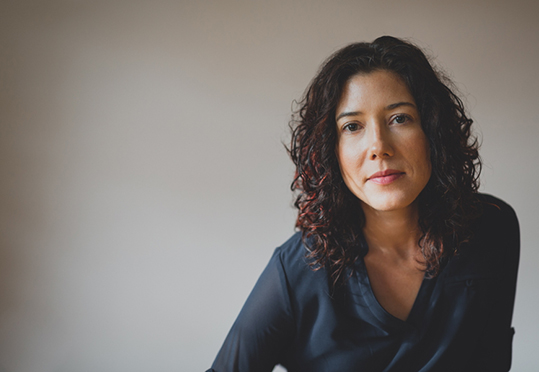 When Maggie Messitt writes a story, she’s not just a background observer, sharing information that floats to the surface when poked. Instead, she becomes a part of the narrative, a sliver of the tale.
When Maggie Messitt writes a story, she’s not just a background observer, sharing information that floats to the surface when poked. Instead, she becomes a part of the narrative, a sliver of the tale.
Messitt is an immersion journalist and knows firsthand of the scenarios of which she writes, connecting the audience to the narrative through vivid visuals and emotion. An immersion journalist from World War II described the genre as “the view from the ground.”
This fall, Messitt will share this ground view as the Bowers Writers House Scholar-in-Residence at Elizabethtown College where she will present three public talks about her writing.
On Thursday, Sept. 10, Messitt shares stories collected through her own experiences and reportage in “South Africa in Three Acts: Elephants, Newspapers and Rimbewu.”
Tuesday, Oct. 13, brings “Place as Character: Cartography, Street History and Literature” about understanding the character of place down to its bones.
And Messitt winds up her time at Elizabethtown on Tuesday, Nov. 10 as she speaks on “Journalism, Literature and the Arts,” about the role these three played in protesting Apartheid.
All of Messitt’s presentations take place at 7 p.m. in Bowers Writers House, 840 College Hill Lane, between Cedar and Cherry streets in Elizabethtown.
“Maggie is here as a key part of the Mellon Foundation grant to support our “Cultivating Humanities” colloquium,” said Jesse Waters, director of Bowers Writers House. With a dynamic background in a variety of writing styles, he said, Messitt will present her craft at Elizabethtown and in the county. “In addition to speaking on campus, Messitt will make an appearance at Manheim Township Public Library and Willow Valley Communities. She also offers office hours for students and faculty and staff members “who would like to learn more about travel journalism, memoir-writing, travel writing and writing as a profession,” said Waters.
Messitt, author of the acclaimed “The Rainy Season,” stories of three generations in Africa’s Rainbow Nation ten years after its first democratic elections, has spent the last decade reporting from inside underserved communities in southern Africa and Middle America. Her work is deeply invested in rural regions, social justice and environmental sustainability.
Like her writing, Messitt’s academic journey has been “non-traditional” she said. After completing her undergraduate degree in journalism and human rights at Boston College and her master’s degree in creative nonfiction at Goucher College, she “went to South Africa with a one-way ticket” to take part in a program that, upon arrival, did not exist. So, Messitt began freelance writing about the rural areas inside former Apartheid homelands. “It was similar to a Native American reservation,” Messitt said. “It was a place that had the least of the media but had the most important stories.”
As a dual-citizen, Messitt lived in northeastern South Africa for eight years, from 2003 to 2011 and became the founding director of a writing school for rural African women, editor of its community newspaper and international magazine and a freelance reporter, selling stories to digital sites. “I was writing first, selling second,” she said. “I was being the writer I wanted to be.”
Her projects and programs were funded by the International Academy of Film and Television, the Lonely Planet Foundation and the South African Media Development and Diversity Agency. Soon, her training of community members paid off, she said. “Mom-and-pop newspapers began popping up” in the surrounding communities.
Since returning to the United States, Messitt’s writing has been published in a variety of magazines including Mother Jones, Edible Madison, Creative Nonfiction and Broad Street. She also has produced multimedia storytelling projects for Wisconsin Public Television and PBS’s Point-of-View Documentary Films for which she was awarded a 2010 Multimedia Reporting Fellowship at University of California – Berkeley’s Knight Digital Media Center.
She recently was named a 2015 Kenyon Review Peter Taylor Fellow. In addition to her time at Elizabethtown this school year, she also will be an Ohio University John Cady Doctoral Fellow.
Messitt began work on her doctorate in creative writing in 2012 at Ohio University. “A good writer never stops learning, never stops pushing themselves to research,” she said of her research. “It was amazing to just focus on one thing.”
Her studies allowed her to read extensively, she said, which inspired her to begin her own book, a rather “complicated hybrid of investigative and memoir” about an aunt who went missing in 2009. “I spent three months on the road; I hunted down people from letters they’d sent to her. I focused on who she was rather than when she was.”
Though immersion journalism has become a bit of a buzzword lately, Messitt said it’s a serious reporting tool that tells a much deeper story. “You don’t just parachute in, gather information and construct a story,” she said. “And you don’t go in with a preconceived idea. Instead, you find that story that wants to be told.”
Now living in southeast Ohio, where she’s completing her doctorate at Ohio University, she explores the foothills of Appalachia with her South African dog, Shinga; kayaks the Ohio River; and collects stories “that want to be written.”
Messitt said her visit to Elizabethtown this fall – she arrives at the beginning of September — is an opportunity to bring together a solid draft of her book. It’s also a chance to leave behind some inspiration for students while she takes part in various classes across campus with Andy Williams, Michael Roy and Jesse Waters.
“My process of writing is super visual, mapping it out on a timeline,” she said. “If students stop by the office they will see this on the walls.”Cost of the programs are free and are sponsored, in part, by a Mellon Cultivating Humanity grant. Contact: Jesse Waters at watersj@etown.edu, writershouse@etown.edu or 717-689-3945.

